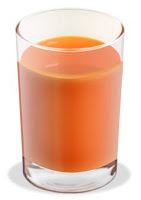Saturated, Polyunsaturated, Monounsaturated -- What Does It All Mean?Not all fats are the same. There are three kinds of fat -- saturated, monounsaturated, and polyunsaturated -- and foods contain a mixture of all three. Butter, for example, is 65 percent saturated, 4 percent polyunsaturated, and 30 percent monounsaturated fat. It's labeled as a saturated fat because that's the fat that occurs in the greatest amount.
Monounsaturated fats * Are liquid at room temperature.
* May help lower your total blood cholesterol level.
* Are thought to raise HDL (good) cholesterol and lower LDL (bad) cholesterol levels.
* Are found in greatest abundance in canola, olive, and peanut oils.
Polyunsaturated fats * Are liquid at room temperature.
* Are found mainly in vegetable oils, except tropical oils (coconut, palm, and palm kernel oils).
* Are thought to lower both HDL (good) and LDL (bad) cholesterol.
* Have been implicated in colon cancer.
Saturated fats * Are usually solid at room temperature.
* Are found in many animal products and tropical oils.
* Cause the total blood cholesterol level to rise.
So what do you do with these facts? First, keep your calories from fat to 30 percent or less of your total calories. Less than a third of the fats you do eat should come from polyunsaturated fats. And less than another third of the fats you do eat should be saturated. The remaining calories should be from monounsaturated fat.
You won't need a chart to accomplish this. Just eat more chicken and fish and less pork and beef. And choose oils over solid fats.
Hydrogenation: A good oil turned saturated
Have you ever wondered how corn oil can turn into corn oil margarine? Or other vegetable oils become shortening? The process is called hydrogenation.
Hydrogenation is a process of changing a liquid oil into a hard or solid fat. Partial hydrogenation only changes some of the individual fat molecules from polyunsaturated to monounsaturated. More hydrogenation will then turn more polyunsaturated fats to monounsaturated fat or change monounsaturated fats to saturated fats. When enough have been changed, the oil becomes "visible" as a hard fat.
Food companies hydrogenate oils either to improve their shelf life or to make an oil into margarine or shortening. When oils are fully hydrogenated, the process turns them into saturated fats...the fat to be avoided.
The oil that may have been heart-healthy in the beginning, may then be no better than lard--so watch out.


